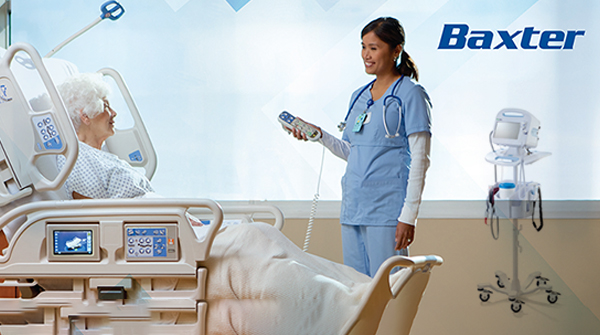Tampa General Hospital Physicians First in Hillsborough County to Perform Same-day Procedure to Diagnose and Treat Lung Cancer
22 June 2023
For the first time in Hillsborough County, Tampa General Hospital (TGH) physicians diagnosed and removed a cancerous tumor from a patient's lung during a single surgery, saving critical time between procedures that might otherwise be weeks apart.
Using two highly precise surgical robots, a doctor first used one robot to identify and diagnose the cancerous tumor. Another doctor then used the second robot to remove the tumor, all in the same day while the patient remained in the surgical suite.
"The robot provides superior navigation, stability, accuracy and precision," said Dr. Alberto Goizueta, medical director of Interventional Pulmonology at Tampa General and assistant professor in the Division of Pulmonary, Critical Care and Sleep Medicine in the USF Health Morsani College of Medicine. Goizueta performed the first part of the procedure – a bronchoscopy and biopsy. "The earlier we diagnose, the better the prognosis for the patient. The longer it takes to obtain a diagnosis and undergo surgery, the chances are higher that the cancer will spread, which then may result in a very different outcome for the patient," Goizueta said.
Patients start the same-day process by receiving a low-dose CT exam of the lung prior to the day of their procedure. If a tumor is detected, then a robotic-assisted bronchoscopy platform called the Ion endoluminal system is used for a minimally invasive biopsy of the lung. A bronchoscopy is a procedure that allows doctors to see the lungs and air passages.
Doctors use the robot to navigate through the airway to the location of the tumor to perform a biopsy of the tumor to confirm the presence of cancer and then place fluorescent dye to mark the position of the tumor.
"This robotic system gives us 3-dimensional, 360-degree access to everything inside the lungs,'' Goizueta said. "I think it will change the way we do diagnostic and therapeutic procedures. And because it's minimally invasive, the patient's recovery time is minimal.''
Once the cancer is identified, a cardiothoracic surgeon uses a second robotic platform, the da Vinci Surgical System, to remove the tumor. As both procedures are minimally invasive, the patient experiences minimal blood loss and a faster recovery. Dr. Jonathan Daniel, a board-certified thoracic surgeon at Tampa General and the TGH Lung Cancer Center, performed the tumor removal during the hybrid procedure.
"Conducting the diagnostic procedure with a same-day surgery for lung cancer is a game-changer and a huge win for patients. Some patients may not even require any follow-up treatment. For them, it's a single event, with same-day diagnosis and treatment,'' Daniel said. "The patient doesn't have to return to the hospital for another operation or an additional round of anesthesia.'' For a patient needing further treatment, the goal of performing both procedures together is to stop the cancer from progressing to more advanced stages.
According to the American Cancer Society, lung cancer is the second most common cancer in both men and women. The American Cancer Society's estimate for lung cancer in the U.S. for 2023 stands at about 238,340 new cases, Daniel said. "This will result in better outcomes and gives patients an improved chance at life."
The Ion bronchoscopy platform consists of a catheter, vision probe, biopsy needle and computer console. It collects tissue samples for biopsies, even when the nodules or lesions are small and in hard-to-reach areas of the peripheral lung − where more than 70% of tumors reside. The ultra-thin, maneuverable catheter allows doctors to reach these lesions in all upper, middle and lower lobes of the lung, and with the precision and stability needed for accurate biopsies.
The FDA-approved system is made by Intuitive Surgical, a California-based technology company specializing in minimally invasive care and robotic-assisted surgery platforms. Intuitive also is the maker of the da Vinci Surgical System, a 3D vision tool that replicates what a human arm can do, and is used for the minimally invasive removal of lung cancer.
"Doing both procedures together in one day expands a world of opportunity for the diagnosis and treatment of lung cancer," said Dr. K. Eric Sommers, a cardiothoracic surgeon and medical director of the TGH Center for Lung Cancer at the TGH Cancer Institute. "A patient with early-stage cancers can now be diagnosed and treated in one procedure, with the goal of achieving a cure."
"This is yet another example of Tampa General being at the forefront of cutting-edge medical technology and innovation,'' Sommers said. "These are the kind of tools you find in the world's best academic health systems, and we're excited to be offering this treatment to people whose lives may depend on it.''
A part of the TGH Cancer Institute, Tampa General's Lung Cancer Center is comprised of a multidisciplinary team of pulmonologists, radiation oncologists, surgeons, medical oncologists, pathologists and other specialists who take a collaborative approach to developing individualized treatment plans.
"By potentially curing the patient in a same-day surgery, this new approach is representative of our focus on innovation, technology and unique management of complex cancers," said Dr. Eduardo M. Sotomayor, director of the TGH Cancer Institute. "Additionally, it shows the type of multidisciplinary teamwork we strive for when caring for each cancer patient."
Tampa General has earned a "high performing" designation for cancer care by U.S. News & World Report for 2022-23, meaning that the academic health system is ranked among the top 10% of hospitals and is also ranked as "high performing" for lung cancer surgery.
For more information on the TGH Lung Cancer Center, visit https://www.tgh.org/institutes-and-services/cancer-institute/lung-cancer-center-of-excellence.
Source:prnewswire.com

